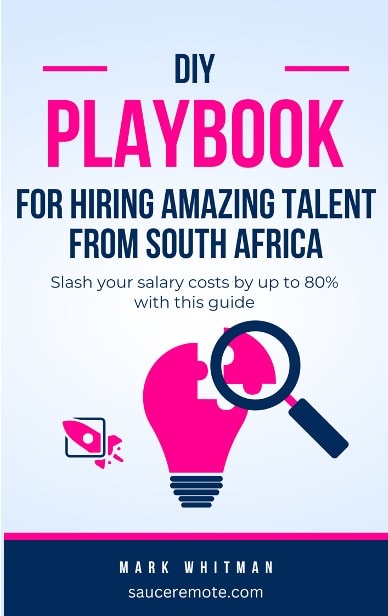When I first delved into recruitment process outsourcing (RPO), one question loomed large: What's recruitment process outsourcing pricing like?
If you're wondering the same, let's cut to the chase. I found the answer, and it may not be as clear as you'd like.
Ready? Let’s roll.
Quick Answer: What Does RPO Cost?
- Cost Per Hire: Typically ranges from $3,000 to $5,000 per hire for standard positions.
- Management Fee Models: Monthly fees can range from $10,000 to $50,000, depending on the scope.
- Project-Based Pricing: Could be a flat fee starting at $50,000 for specific hiring projects.
- Hybrid Models: Customised pricing combining elements of the above.
Note: These figures are general estimates. Actual costs vary based on factors like industry, role complexity, and volume of hires.
Now, let's dive deeper to understand what influences these costs and how to choose the right RPO model for your organisation.
Understanding Recruitment Process Outsourcing Pricing
Recruitment Process Outsourcing involves transferring all or part of your recruitment activities to a third-party expert.
The pricing isn't one-size-fits-all; it's influenced by several key factors.
Factors Influencing RPO Pricing
- Scope of Services: Do you need end-to-end recruitment or just specific services like sourcing or screening?
- Volume of Hiring: Higher hiring volumes can reduce the cost per hire due to economies of scale.
- Complexity of Roles: Specialised or executive positions often require more resources, increasing costs.
- Geographic Reach: International or multi-regional recruitment adds layers of complexity and expense.
- Contract Duration: Longer contracts may offer discounted rates.
- Technology: Advanced tools and platforms provided by the RPO can affect pricing.
When I evaluated RPO providers, these factors significantly impacted the quotes I received.
Let’s look at some common RPO pricing models.

Discover how to slash your salary costs by 80%
Get our exact process for hiring amazing overseas talent from South Africa. Includes copy-and-paste templates and a detailed salary guide.
Common RPO Pricing Models
Understanding different pricing models helps in selecting the one that aligns with your needs and budget. Here’s a handy table I created. Use it to compare common RPO pricing models.
Pricing Model | Description | Typical Costs | Best For |
|---|---|---|---|
Cost Per Hire | Fixed fee for each successful hire | $3,000 to $5,000 per hire | Organisations with predictable hiring needs and cost control focus |
Management Fee | Regular fee covering agreed-upon services | $10,000 to $50,000 per month | Companies with ongoing recruitment needs seeking comprehensive solutions |
Project-Based | Flat fee for specific hiring projects | Starting at $50,000 and up | Short-term projects or rapid expansion phases |
Hybrid Models | Customised mix of different pricing models | Varies based on customisation | Organisations with unique requirements |
Real-World RPO Pricing Examples
To give you a clearer picture of how RPO pricing models work in practice, let's dive deeper into two detailed scenarios based on my experience.
Example 1: Cost Per Hire Model for a Manufacturing Company
A mid-sized manufacturing company needed to hire 30 skilled technicians over the next six months due to a new production line expansion. They had specific skill requirements but a relatively straightforward hiring process.
Pricing Model: Cost Per Hire
How the Pricing Works:
The company and the RPO provider agreed on a fee of $4,000 per successful hire.
This fee covered the entire recruitment process for each technician, including job advertising, candidate sourcing, screening, interviewing, and onboarding assistance.
The company only paid the fee once a candidate accepted the job offer and successfully started their position.
Total Cost Calculation:
- Number of Hires Needed: 30 technicians
- Total Cost: 30 hires x $4,000 per hire = $120,000
Here’s why so many businesses prefer this RPO pricing model.
- Cost Transparency: The company had a clear understanding of recruitment expenses tied directly to hiring outcomes.
- Flexibility: They could adjust hiring volumes without renegotiating the contract, paying only for successful hires.
- Efficiency: The RPO provider was motivated to fill positions promptly to receive payment.
Now, let’s look at another RPO cost model.
Hire remote talent from South Africa & slash salary costs by 80%
Salaries start from £8,000 per year!
Example 2: Management Fee Model for a Global Tech Firm
A rapidly growing global tech company needed to scale its workforce by adding 100 new employees over the next year, spanning roles in engineering, sales, and customer support across multiple countries.
Pricing Model: Management Fee
How the Pricing Works:
The company agreed to a fixed fee of $25,000 per month with the RPO provider.
The fee covered end-to-end recruitment services, including employer branding, talent market mapping, sourcing, screening, interviews, and assistance with visa processing for international hires.
The agreement was set for 12 months, with options to extend based on performance and changing needs.
Total Cost Calculation:
- Annual Cost: $25,000 per month x 12 months = $300,000
- Cost Per Hire Estimate: With an anticipated 100 hires, the average cost per hire would be $3,000.
And here’s why this model is also favoured by scaling businesses:
- Predictable Budgeting: The fixed monthly fee allowed for consistent budgeting, regardless of monthly hiring fluctuations.
- Strategic Partnership: The RPO provider integrated with the company's HR team, aligning recruitment strategies with business goals.
- Global Expertise: The provider's international experience streamlined the complex process of hiring across different countries.
Hire remote talent from South Africa & slash salary costs by 80%
Salaries start from £8,000 per year!
Do You Know Why RPO Can Be Cost-Effective?
Yes, at first glance, RPO costs might seem high, but consider the hidden expenses of traditional recruitment:
- Time-to-Hire Delays: Vacant positions can lead to lost productivity.
- In-House Recruitment Costs: Salaries, benefits, and training for internal recruiters add up.
- Turnover Costs: Poor hires lead to higher turnover, increasing long-term costs.
Pro tip: Check out my ultimate guide on the benefits of recruitment process outsourcing to learn more.
With RPO, I found that the overall efficiency and quality of hires improved, providing better value for the investment.
My Final Thoughts
And there you have it. Understanding the pricing of recruitment process outsourcing is the first step toward making a strategic decision that can transform your hiring process.
By addressing your specific needs and carefully selecting an RPO provider, you can optimise costs while attracting top talent. Good luck!
